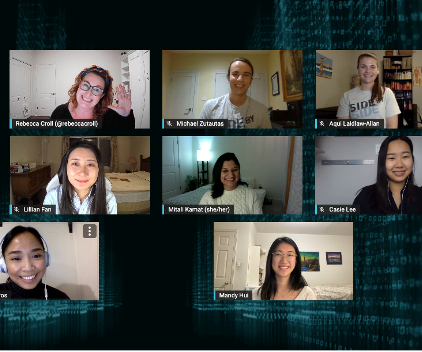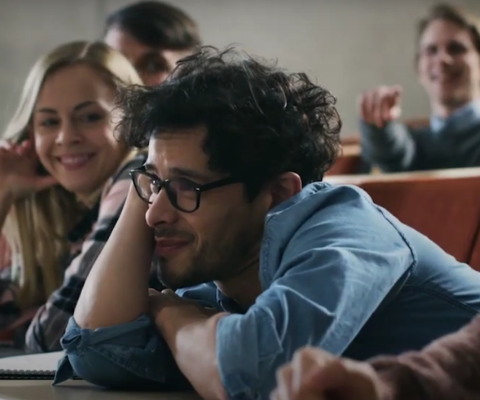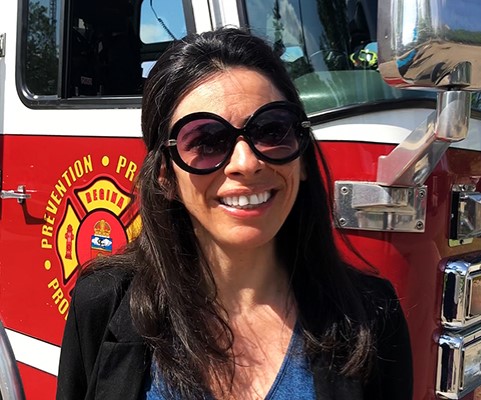Les arts libéraux, un dialogue international
Texte sur l’écran : [The future of the liberal arts: A global conversation; March 7-8, 2016; Universities Canada logo]
Texte sur l’écran : [L’avenir des arts libéraux : un dialogue international; Les 7 et 8 mars 2016; logo d’Universités Canada]
Paul Davidson, president, Universities Canada:
We have framed the workshop as a global conversation on the future of liberal arts. What was the catalyst for the workshop? The workshop stems very directly from the significant decline in liberal arts enrolment that our members have witnessed, and it’s driven by the ongoing and misguided assaults on the value of a liberal arts degree that we see in popular media.
Kathy Wolfe, vice-president for Integrative Liberal Learning and Global Commons, Association of American Colleges and Universities:
Liberal education used to be sort of aggressively not vocational, that it was strictly about knowledge for its own sake. And I think it still does have that very intrinsic value, but we want to talk more now too about the fact that it’s essential preparation for work and for personal and civic life, that it does have intrinsic value but it has practical value as well, and that it doesn’t demean liberal education to talk about it as being something practical.
Ross Finnie, director, Education Policy Research Initiative, University of Ottawa:
Look at business, and then look at health, social sciences, and even humanities. They’re not separated by more than about $10,000. Does the average person in this world know that your average business student 13 years out makes just a tad more than your average humanities graduate?
Robert Gibbs, member, SSHRC Council; and, director, Jackman Humanities Institute, University of Toronto:
My basic premise should be that every student going to our universities should be learning how to do research. That should be the central learning outcome.
Tan Tai Yong, executive vice-president, Academic Affairs, Yale-NUS College:
I was so happy to hear two of our students, undergraduates, second year, publishing their first paper in psychology with professors from Yale and NUS in a psychology journal. Now, those are the kinds of outcomes that we are trying to achieve amongst our undergraduate.
Marie Battiste, professor, Educational Foundations, University of Saskatchewan:
I think that what has happened over the years is that we still have not addressed some of the key issues around Indigenous knowledges, the respect for it, as well as to how do we help other non-Indigenous faculty members begin to embrace Indigenization as a part of their work.
Kevin Kee, dean, Faculty of Arts, University of Ottawa:
I am suggesting that we make room for experimentation, for what might emerge, so that we can do careful research and close analysis but also do a distant reading of vast data sets, so that we can do text and write in the way that we have for millennia, but we can also write with audiovisual, we can write with maps; so that we can publish in a reflexive, time-intensive way, but we can also publish quickly and on line.
Christopher Manfredi, provost and vice-principal, Academic, McGill University:
We have to come up with a good story about why the liberal arts, the social sciences, and humanities are important. And the story I always liked to tell was the contribution of the social sciences and humanities to what I think is the most important public health policy success probably in Canadian history, and one in which Canada was actually a leader in the world, and that is a reduction in the incidence of smoking. What we had to do was persuade people to engage in a massive change of behaviour. That’s why we reduced the incidence of smoking. And how did that happen? It happened through – largely through regulation, taxation, and communication. And all of those strategies – the regulatory schemes, the taxation schemes, the communication schemes – just look at those nice pictures on your packs of cigarettes – all of those were driven by disciplines in the social sciences and humanities.
Texte sur l’écran : [Logo bilingue d’Universités Canada; Porte-parole des universités du Canada. archives.univcan.ca]
Texte sur l’écran : [Universities Canada bilingual logo; The Voice of Canada’s Universities. archives.univcan.ca]
Quelles orientations et innovations dans les programmes et les méthodes d’enseignement les universités adoptent-elles pour répondre aux employeurs qui demandent des compétences et des capacités acquises par l’étude des sciences humaines? Comment communiquer adéquatement la valeur considérable des arts libéraux dans un contexte de plus en plus technologique et mondialisé?
Lors d’un atelier de deux jours tenu en mars 2016, des dirigeants universitaires du Canada, des États-Unis et de l’Asie ont discuté de l’avenir des arts libéraux et de leur place dans notre avenir collectif. On remarque parmi les tendances en matière d’apprentissage le rôle accru des technologies dans les arts; l’équité et l’intégration; les nouvelles méthodes incorporant aux programmes d’arts libéraux l’acquisition de compétences en entrepreneuriat et en gestion.
*Vidéo et transcription disponibles en anglais seulement.
Catégorie : Recherche et technologie



